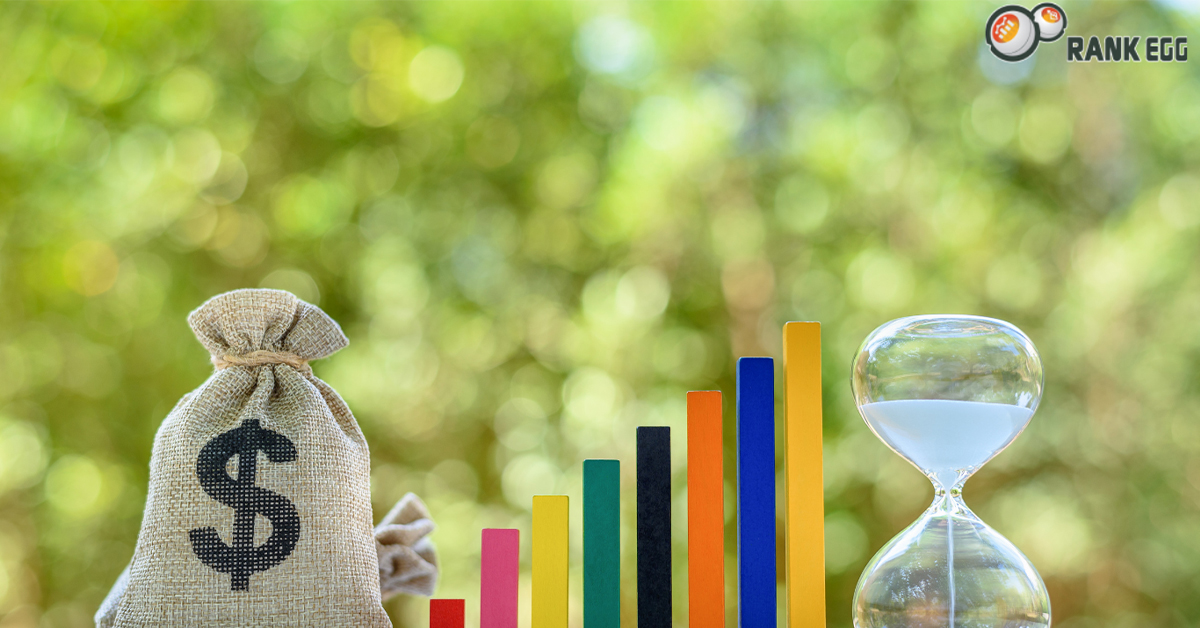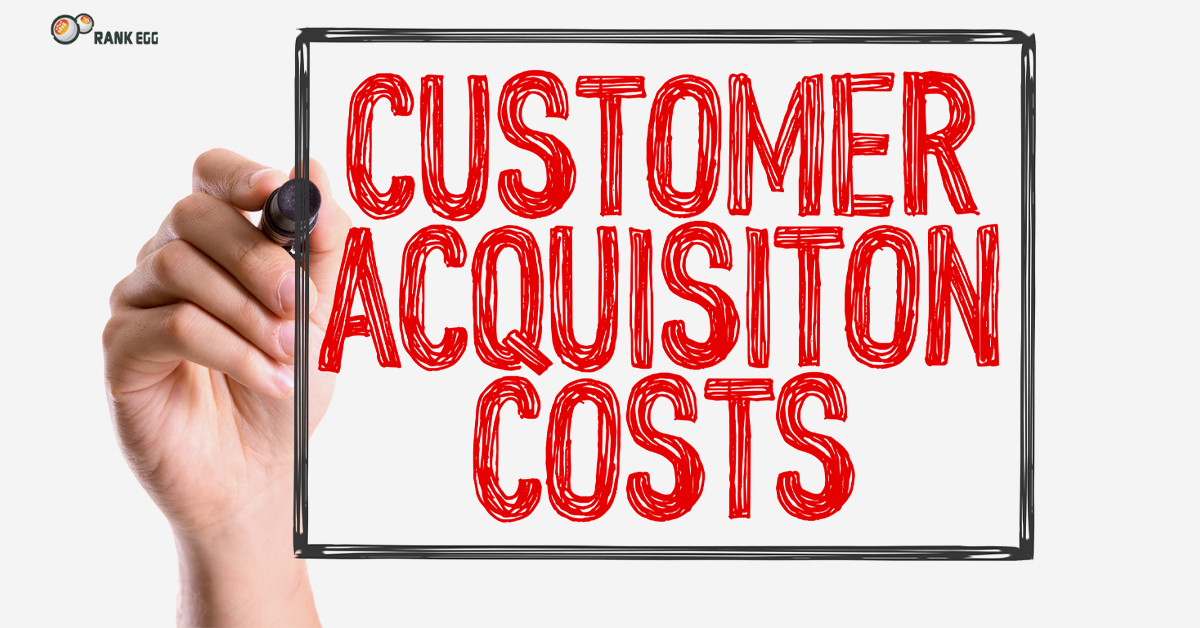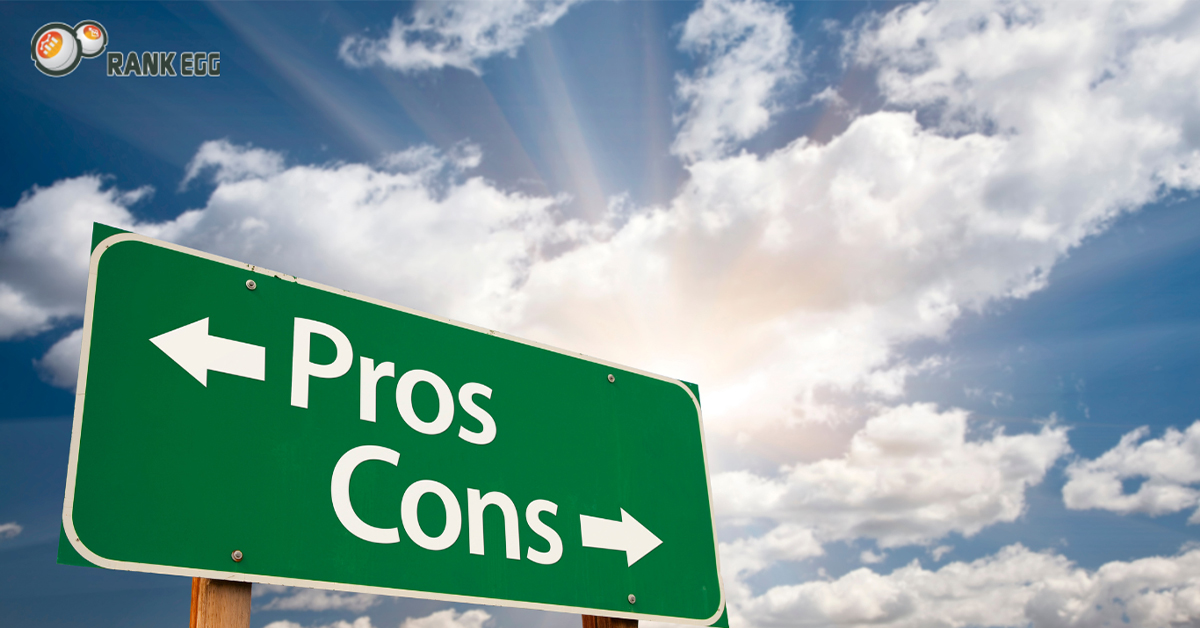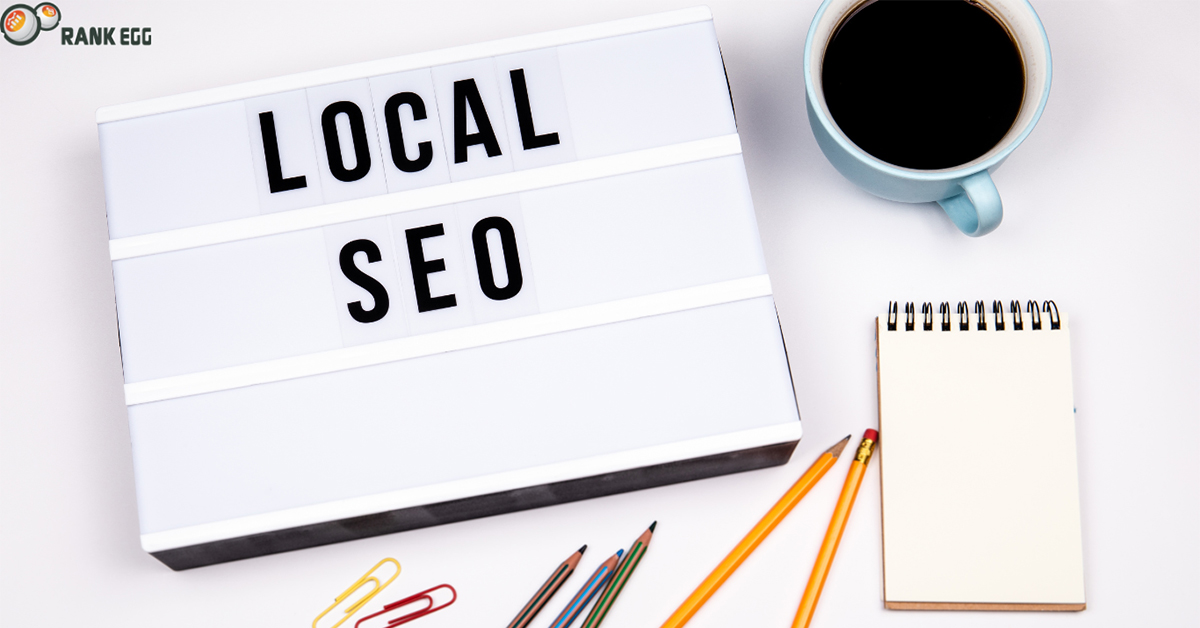Businesses in the digital age need a strong marketing strategy. Local SEO and PPC advertising are popular methods that enhance online presence but have distinct purposes.
PPC targets users who may not be ready to purchase immediately but are in the exploration phase. On the other hand, Local SEO focuses on attracting users who are ready to take action.
This article will help you determine whether PPC, Local SEO, or a combination of both is the best approach for your business.
Combine PPC & SEO to boost marketing efficiency, reduce costs, increase customer value, & maximize ROI. Utilize strategies, analytics for retargeting, social media ads, & SEO enhancement.
PPC VS Local SEO: A Comparative Analysis

In digital marketing, businesses often wonder whether to invest in Pay-Per-Click (PPC) advertising or Local Search Engine Optimization (SEO). The advantages of both strategies can significantly impact a company's online presence. We will analyze PPC and Local SEO for you to determine which approach best suits your needs.
Timeframe and Results
The right digital marketing strategy depends on how quickly you need results. Let's see how PPC and Local SEO compare in this area.
PPC:
- Quick setup and immediate results.
- The advertisements appear in top search results once the campaigns go live.
- Ideal for short-term promotions or events.
Local SEO:
- Takes time to build and see results.
- Organic ranking improves over months with consistent effort.
- Best for long-term growth and sustained visibility.
Cost-Effectiveness
To plan and budget effectively, you must understand how much PPC and Local SEO will cost.
PPC:
- Costs are based on clicks (pay for each visitor).
- Can be expensive for competitive keywords.
- Requires a continuous budget to maintain visibility.
Local SEO:
- Investment in time and resources for optimization.
- No direct cost per click, making it more cost-effective over time.
- Results can be maintained with minimal ongoing expenses once established.
Target Audience and Reach
Both strategies help you reach your audience, but they do so in different ways.
PPC:
- Targets specific demographics and keywords.
- Customizable ads for different audience segments.
- Great for reaching a broad audience quickly.
Local SEO:
- Focuses on attracting local customers.
- Optimizes for local search terms and geographic areas.
- Ideal for companies with a physical presence or service area.
Maintenance Requirements
Knowing the upkeep needed for each strategy helps in managing long-term efforts.
PPC:
- Requires constant monitoring and tweaking of campaigns.
- Regular updates to keywords and ad copies.
- Ongoing budget allocation.
Local SEO:
- Needs periodic updates to content and local listings.
- Regularly gather reviews and manage local citations.
- Less intensive once the initial setup is complete.
Flexibility
Flexibility in adjusting campaigns can be crucial for meeting business needs and market changes.
PPC:
- Highly flexible and easy to adjust campaigns quickly.
- Ability to pause, start, or modify ads instantly.
- Responsive to immediate business needs and market conditions.
Local SEO:
- Changes take time to reflect in search rankings.
- Less immediate control over visibility adjustments.
- Requires strategic planning for long-term impact.
ROI Tracking
Tracking return on investment (ROI) is essential for measuring the success of marketing efforts.
PPC:
- Clear and immediate ROI tracking.
- Detailed analytics on ad performance and conversion rates.
- Easy to measure cost per acquisition.
Local SEO:
- More complex to track ROI.
- Requires analysis of organic traffic, leads, and conversions.
- Long-term growth can lead to substantial ROI.
Longevity of Results
Make a note of how long each strategy's results last.
PPC:
- Results last only as long as the campaign is active.
- No lasting impact once ads are stopped.
- Suitable for temporary boosts in traffic.
Local SEO:
- Provides lasting results with ongoing benefits.
- Organic rankings can be maintained with minimal effort.
- Ideal for sustainable growth and long-term presence.
Local SEO Vs. PPC: How to Split Your Marketing Budget

Choosing between Pay-Per-Click (PPC) ads and Local Search Engine Optimization (SEO) can be hard. Both have strengths that can help your business grow. Let’s consider how to decide which one to use for different goals.
Goal 1: Brand Building and Long-Term Growth
Local SEO:
Local SEO helps your business show up in local searches. It builds trust and lasts long without needing extra money after setup.
- Better search rankings: Helps you appear in local searches.
- Builds trust: People trust organic results more than ads.
- Lasting impact: Once high in rank, you stay visible without paying more.
PPC:
PPC gets your business in front of people right away. You pay each time someone clicks on your ad, so it needs regular spending to keep going.
- Immediate results: Your ads show up quickly.
- Quick traffic: This brings visitors to your site fast.
- Constant spending: You need to pay regularly to stay visible.
Goal 2: Strategic Positioning In High-Cpc Markets
Local SEO:
Local SEO is cost-effective and helps you stay visible in search results without constant payments.
- Organic presence: Builds strong search result positions.
- Cost-effective: No repeated costs.
- Long-lasting visibility: Stays visible without high costs.
PPC:
PPC helps you enter competitive markets quickly. You can target specific places and times for your ads.
- Quick entry: Enter competitive markets fast.
- Targeted ads: Control where and when ads appear.
- Bid on keywords: Useful for important terms.
Goal 3: Invest In Time-Sensitive Events And Seasons
Local SEO:
It takes time for local SEO results, so it’s better for year-round visibility rather than quick events.
- Takes time: Not for quick results.
- Always visible: Good for staying visible all year.
PPC:
PPC works great for short-term promotions. You can easily adjust campaigns for different seasons.
- Fast promotions: Ideal for short-term offers.
- Flexible: Change ads based on the season.
- Scalable: Adjust spending as needed.
Goal 4: Product Launches and Promotions
Local SEO:
Local SEO keeps your products visible over the long term without extra costs.
- Long-term visibility: Products stay visible.
- Future growth: Helps with future promotions.
- Cost-effective: No added costs for staying visible.
PPC:
PPC drives immediate traffic to new products and promotions.
- Quick attention: Draws traffic to new products fast.
- Highlight offers: Promotes deals effectively.
- Instant interest: Generates quick engagement.
Goal 5: Market Analysis and Testing
Local SEO:
Local SEO helps you understand how people find you organically and spot trends over time.
- Organic insights: Learn how people find you naturally.
- Spot trends: Identify long-term chances.
- Audience preferences: Know what your audience likes.
PPC:
PPC allows quick testing and feedback on different strategies.
- Fast testing: Try different strategies quickly.
- Quick results: See how ads perform right away.
- Keyword testing: Find out what words work best.
Goal 6: Omnichannel Marketing
Local SEO works well with other channels like social media, ensuring consistent brand presence.
- Integration: Matches well with other marketing channels.
- Consistent presence: Keeps your brand visible everywhere.
- Long-term engagement: Builds loyalty and repeat customers.
PPC:
PPC complements other paid efforts and can be coordinated across multiple platforms.
- Supports paid efforts: Works with other ad methods.
- Multi-platform: Run ads on different sites.
- Consistent messaging: Ensure the same brand message is everywhere.
Combining PPC and Local SEO for Maximum Impact

Your business can grow faster using Pay-Per-Click (PPC) and Local SEO (Search Engine Optimization). This strategy uses the best parts of both methods to reach more customers and improve your results.
Growth Of The Funnel and Pipeline
Combining PPC and Local SEO makes your marketing funnel more efficient, smoothly guiding potential customers from awareness to conversion.
PPC Benefits:
- Immediate visibility: Get your ads in front of potential customers quickly.
- Precise targeting: Reach specific audiences based on keywords, demographics, and location.
- Local lead generation: Capture leads instantly with compelling ad copy and landing pages.
Local SEO Benefits:
- Organic reach: Attract local customers searching for your services.
- Consistent traffic: Sustain a steady flow of visitors to your website.
- Trust building: Rank high in search results to establish credibility.
Lower Customer Acquisition Cost (CAC)
Using PPC and Local SEO together can lower the cost of acquiring new customers.
PPC Benefits:
- Cost control: Set and adjust budgets to manage expenses effectively.
- Quick wins: Get immediate results and refine strategies based on performance.
- Targeted ads: Only pay for clicks from interested users.
Local SEO Benefits:
- Free traffic: Attract visitors without paying for every click.
- Long-term savings: Once optimized, pages drive traffic with minimal cost.
- Increased reach: Rank in local searches to reach more potential customers.
Higher Lifetime Value (LTV)
Focusing on both PPC and Local SEO can increase your customers' lifetime value, leading to more revenue over time.
PPC Benefits:
- Re-engagement ads: Use retargeting to keep existing customers engaged.
- Special offers: Promote deals to encourage repeat purchases.
- Upselling: Show related products to increase order value.
Local SEO Benefits:
- Loyalty: Local customers are more likely to return and refer to others.
- Content marketing: Provide valuable information to keep customers coming back.
- Community presence: Build a solid local reputation to keep customers.
Synergy of Data for Better Targeting
Using PPC and Local SEO data helps you understand your audience better and improve your targeting.
PPC Benefits:
- Detailed analytics: Get insights into what ads and keywords perform best.
- A/B testing: Try different versions of ads to see which is the most effective.
- Customer behavior: Track how users interact with your ads and website.
Local SEO Benefits:
- Keyword research: Identify the terms your audience uses to find your business.
- User engagement: Analyze how visitors interact with your content.
- Conversion tracking: Monitor which local searches lead to sales.
Channel-Based Roi Maximization
Combining PPC and Local SEO helps you get the most out of your marketing budget by maximizing your return on investment (ROI).
PPC Benefits:
- Flexible spending: Adjust budgets based on performance to optimize ROI.
- Cross-channel promotion: Use PPC ads to support other marketing efforts.
- Immediate results: Quickly see which strategies are effective.
Local SEO Benefits:
- Sustainable growth: Create a solid online presence that continues to generate traffic.
- Integrated marketing: Combine local SEO with other efforts for a unified strategy.
- Cost-effective: Drive organic traffic without ongoing ad spend.
PPC vs. Local SEO: How to Make Local SEO and PPC Work For You

The next time you think about PPC (Pay-Per-Click) or Local SEO (Search Engine Optimization), it's essential to understand that both have their benefits, and combining them can often yield the best results. Here’s how you can make both SEO and PPC work for your business.
Create Retargeting Ads
You can retarget potential customers with retargeting ads after they have visited your website but have not converted.
Benefits of Retargeting Ads:
- Increased Brand Awareness: Keeps your brand in front of potential customers who have already shown interest.
- Improved Conversion Rates: Encourages users to return and complete their purchase.
- Cost Efficiency: Targets users more likely to convert, reducing wasted ad spend.
Tips for Effective Retargeting:
- Segment Your Audience: Group users based on their behavior and target them with relevant ads.
- Use Compelling Offers: Provide special deals or discounts to entice users to your site.
- Test Different Ads: Experiment with various ad designs and messages to see what works best.
Promote Website Content with Social Media Ads
Social media platforms offer potent tools for promoting your content to a wider audience, boosting your SEO, and driving traffic to your website.
Benefits of Social Media Ads:
- Enhanced Reach: Allows you to target specific demographics and interests.
- Engagement Opportunities: Enables direct interaction with your audience through likes, comments, and shares.
- Boosted Traffic: Drives visitors to your website, which can improve your search engine rankings.
Tips for Promoting Content:
- Choose the Right Platforms: Focus on social networks where your target audience is most active.
- Create Eye-Catching Visuals: Use high-quality images or videos to capture attention.
- Include Clear CTAs: Encourage users to click through to your website with strong calls to action.
Optimize Your SEO Strategy with Ad Data
Using data from your PPC and social media ads can provide valuable insights that help refine your SEO strategy.
Benefits of Data Collection:
- Keyword Insights: Track which keywords and phrases drive the most traffic and conversions.
- Audience Behavior: Know how your ads and website interact with users.
- Performance Metrics: Monitor the success of different campaigns to optimize future efforts.
Tips for Data Utilization:
- Analyze Click-Through Rates: Research high-performing keywords and incorporate them into your SEO content.
- Track Conversion Paths: See how users navigate your website to streamline their journey.
- Adjust Targeting: Use demographic and behavioral data to target your SEO efforts better.
SEO vs. PPC Statistics

When choosing between SEO and PPC, looking at the numbers is helpful. Understanding the statistics behind these two strategies can guide your decision. Here's a comparison of critical statistics for SEO and PPC.
SEO Statistics
The goal of SEO (Search Engine Optimization) is to increase your website's organic search results. Here are some important stats:
- Organic Search Results: 70% of users click on organic search results over paid ads.
- Long-Term Traffic: 53% of all website traffic comes from organic search.
- Cost-Effectiveness: SEO leads have a 14.6% close rate, compared to outbound leads, which have a 1.7% close rate.
- User Trust: 80% of users ignore paid ads and focus on organic results.
- Long-Term RO: SEO can provide long-term benefits, with 60% of marketers stating that inbound (SEO) strategies generate high-quality leads for their sales teams.
PPC Statistics
PPC (Pay-Per-Click) advertising involves paying for advertisements in search engine results or on social media. Here are some key stats:
- Immediate Visibility: PPC ads can increase brand awareness by 80%.
- Top of the Page: 41% of clicks go to the top three ads on the page.
- Quick Results: Businesses make an average of $2 for every $1 spent on Google Ads.
- Targeted Ads: PPC visitors are 50% more likely to purchase something than organic visitors.
- Ad Flexibility: 64% click on Google ads when they are looking for products online.
SEO vs. PPC: Your Unique Roadmap

Choosing between SEO and PPC can be tricky. Each business has its own needs, and it's important to find the right fit. Here are some tips for creating your own strategy.
Personalized Strategy Based on Business Needs
Every business is different. Some might benefit more from SEO, while others may see better results with PPC. Here’s how to decide:
- Budget: A small SEO budget might be better since it doesn’t involve paying for each click. PPC can get expensive, especially in competitive markets.
- Time Frame: Local SEO takes time to work. PPC can give you quick visibility and traffic.
- Target Audience: SEO is excellent for attracting long-term customers who trust organic search results. PPC can target specific audiences with tailored ads.
- Competition: In highly competitive industries, PPC can give you an edge by placing your ads at the top of the search results.
- Business Goals: SEO is ideal for building brand trust and long-term traffic. PPC is effective for immediate sales and leads.
The Third Option: Combining SEO and PPC for Optimal Results
Sometimes, the best strategy is to use both SEO and PPC. Here’s why combining them can be powerful:
- Increased Visibility: Gearing in paid and organic search results can dominate the search engine results page (SERP).
- Keyword Data: Use PPC to test which keywords convert the best, then focus your SEO efforts on those keywords.
- Balanced Approach: While SEO builds long-term growth, PPC can drive immediate traffic and sales.
- Comprehensive Coverage: Reach different segments of your audience by covering both organic and paid search channels.
- Enhanced Remarketing: Use data from SEO and PPC campaigns to create targeted remarketing ads, reaching users who have interacted with your site before.
Pros & Cons of Local SEO Vs PPC

Local Search Engine Optimization (SEO) and Pay-Per-Click (PPC) advertising are often the competing options for businesses regarding digital marketing. Both strategies offer unique benefits and drawbacks.
Benefits of PPC
PPC can offer various advantages for businesses looking to increase visibility and drive traffic quickly.
Immediate Visibility
You can see PPC ads at the top of search results almost immediately. Your site can get a lot of traffic from this immediate visibility. It’s especially useful for new businesses or promotions.
Excellent for Targeted Campaigns
PPC is great for reaching specific audiences. You can tailor your ads to target particular demographics or interests, making your campaigns more effective.
Complements SEO Efforts
You can use PPC and SEO together to boost your online presence. While SEO builds organic traffic over time, PPC provides immediate results. Together, they create a balanced marketing strategy.
Flexibility and Adaptability
PPC campaigns can be adjusted quickly. You can change your ads, keywords, or budget at any time. You can use this flexibility to adjust to changes in the market or new opportunities.
Quick Results
Instead of SEO, which takes months to show results, PPC delivers fast outcomes. Within a few days, you can see traffic and conversions. This speed is beneficial for time-sensitive campaigns.
Ads Appear Above Organic Rankings
PPC ads are often displayed above organic search results. This prime placement increases the chances of clicks. Your ads will be seen by more people this way.
Pinpoint Target Audience
PPC allows for precise audience targeting. You can target users based on their location, interests, and behavior. This precision improves the relevance and effectiveness of your ads.
A/B Testing Capabilities
PPC platforms support A/B testing. Your ads can be tested to determine which version performs better. You can improve your campaign results by doing this.
Enhanced Targeting
PPC offers advanced targeting options. Targeting users is possible based on age, gender, and interests. This ensures your ads reach the right people.
Speed and Position on the Page
Pay-per-click ads can be set up quickly and appear in the top results. This speed and prime positioning drive immediate traffic. You can use it for urgent marketing needs.
Dynamic and Visual Product Ads
PPC supports dynamic and visual ads. These ads can showcase products in an engaging way. They attract more attention and can lead to higher conversion rates.
Brand Visibility
PPC increases brand visibility. Users still see your brand Even if they don’t click on your ads. This repeated exposure can build brand recognition over time.
Marketing Intelligence
PPC provides valuable data on user behavior and preferences. This marketing intelligence helps refine your strategies. It can lead to more effective campaigns in the future.
Agility
PPC campaigns can be quickly adjusted. You can change your strategy based on performance data. You can remain competitive and responsive by being agile.
Stability
PPC offers a stable source of traffic. Unlike organic traffic, which can fluctuate, PPC provides consistent results. This stability is beneficial for maintaining a steady flow of visitors.
Cons of PPC
While PPC offers numerous benefits, there are also some drawbacks to consider.
Expensive Ads
PPC can be expensive, especially for competitive keywords. You can lose profit margins due to high costs. It’s important to manage your budget carefully.
Lower Profit Margins
The cost of PPC ads can reduce your overall profit margins. You need to ensure that the revenue generated from PPC justifies the expense. This requires careful planning and analysis.
Ads Can Become Stale Over Time
PPC ads can only retain their effectiveness if updated regularly. Stale ads may lead to lower click-through rates. It’s important to refresh your ads to keep them engaging.
Advantages of Using Local SEO

Local SEO helps businesses attract more local customers by improving their online presence. Here are some key advantages:
Cost-effectiveness
Local SEO can save you money compared to other methods like PPC.
- No Pay-per-click Costs: You don’t pay for each click on your listing.
- Long-term Benefits: Once you rank well, you get traffic without ongoing costs.
Long-term Results
SEO offers results that last for a long time.
- Stable Traffic: Organic search traffic stays steady over time.
- Brand Authority: High rankings build trust and credibility.
Targets Users with High Intent
Local SEO reaches people who are ready to buy.
- High Conversion Rates: Local searchers often have strong purchase intent.
- Relevant Audience: Attracts visitors specifically looking for your services.
Quantifiable Results
You can measure how well your local SEO is doing.
- Analytics Tools: Use tools like Google Analytics to track SEO and local SEO performance.
- KPIs: Monitor key metrics such as organic traffic and rankings.
Credibility and Trust
Appearing in organic search results boosts your reputation.
- Authority: Organic listings appear more credible than ads.
- User Trust: People tend to trust organic search results more.
Visibility and Traffic
Increase your visibility and get more visitors.
- Featured Snippets: These can place your business prominently on search pages.
- Higher Click-through Rates: Organic listings often get more clicks than ads.
Better User Experience
Good local SEO practices improve your website's usability.
- Quality Content: Providing valuable articles keeps users engaged.
- Technical SEO: Optimizing site speed and mobile compatibility enhances user experience.
Competitive Advantage
A solid local SEO strategy can give you an edge over competitors.
- Awareness and Branding: Better visibility improves brand awareness.
- Versatility: Effective across various local business types and industries.
Reputation and Reviews
Positive reviews enhance your online reputation.
- Local Listings: Encourage customer reviews on platforms like Google My Business.
- Social Proof: Good reviews serve as endorsements for your business.
Cost per Click
The cost of local SEO isn't per click.
- Free Organic Traffic: Get traffic without additional costs.
- Better ROI: Higher return on investment than paid advertising.
Sustainability
Local SEO supports sustainable growth.
- Not Paying for Every Click: Save money by not paying per click.
- Strategic Advantage: Investing in SEO pays off over time.
Cons of Local SEO
Local SEO has many benefits but also some challenges:
Search Engine Algorithms Change
SEO strategies need updates as algorithms change.
- Regular Updates: Stay updated to maintain rankings.
- Adaptability: Be ready to adjust your approach as needed.
You’ll Need to Optimize Your Website Regularly
Consistent optimization is necessary.
- Ongoing Work: SEO requires continuous updates and improvements.
- Content and Technical SEO: Both need regular review and optimization.
SEO Takes Time to Show Results
Results from SEO efforts aren’t immediate.
- Patience Required: It can take months to see significant changes.
- Long-term Effort: Continuous effort is needed for lasting impact.
Requires High-Level Skills and Expertise
Effective SEO needs specialized knowledge.
- Skillset: Understanding SEO techniques and best practices.
- Expertise: Professionals may be necessary.
Balancing these pros and cons can help you decide if local SEO is right for your business.
Conclusion
You can't make a black-and-white decision between PPC and local SEO. It’s about aligning your marketing strategy with your business goals. PPC can give you immediate visibility and is perfect for time-sensitive campaigns, while Local SEO offers long-term benefits and builds organic authority.
The magic often happens when you combine the strengths of both. By leveraging PPC for quick wins and Local SEO for sustained growth, you can optimize your marketing efforts and maximize your ROI. So, take a step back, evaluate your business needs, and consider how integrating both strategies might be the game-changer you're looking for with Rankegg.
FAQs
Keywords play a crucial role in both Local SEO and PPC campaigns. Understanding which keywords are most relevant to your business can help you determine the best strategy.
Local SEO:
PPC:
It's essential to understand how each keyword performs regarding search results and customer engagement.
Local SEO:
PPC:
Location-based search results can differ significantly, impacting your choice between Local SEO and PPC.
Local SEO:
PPC:
Your available resources will significantly impact PPC or Local SEO.
Local SEO:
PPC:

